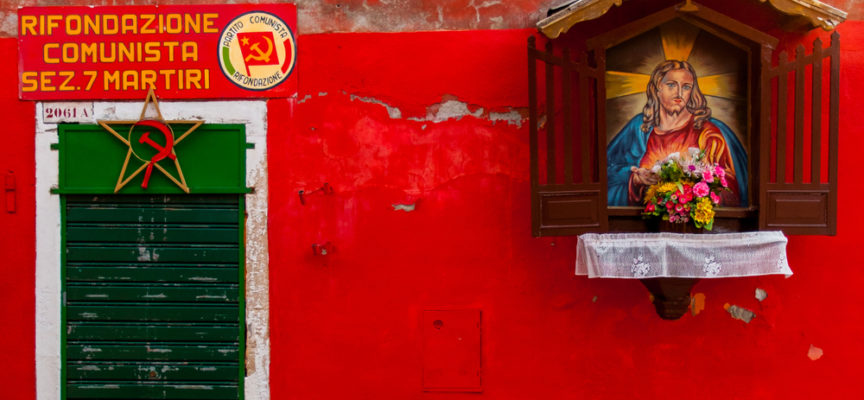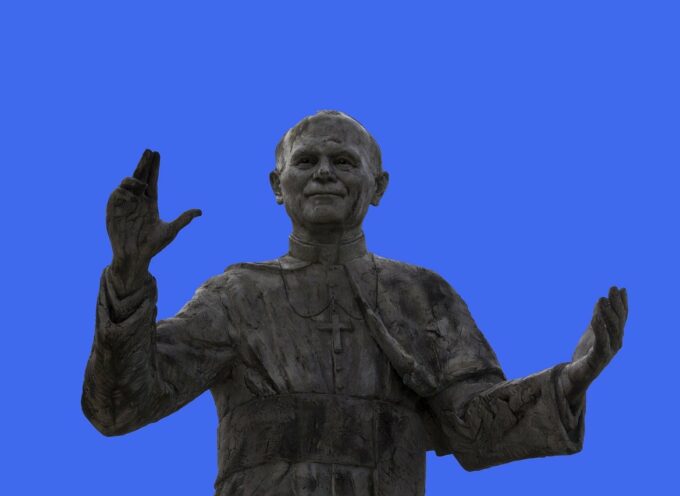Recently, Romanian public intellectual Mihail Neamtu came to Raleigh to facilitate a seminar on Marxism. Together, he and I and the participants read portions of Romanian historian Mircea Eliade’s The Myth of the Eternal Return, French philosopher Raymond Aron’s The Opium of the Intellectuals, Russian dissident Alexandr Solzhenitsyn’s Gulag Archipelago, and the Catholic Church’s statement on Marxism and Liberation Theology.
The discusion was lively, undergirded not only by the readings but by Dr. Neamtu’s insights and his life experience under the brutal reign of Communist leader Nicolai Ceausescu. And, although I won’t try to reproduce via blogpost the contents of the seminar, I can at least provide concise summaries of the readings interspersed with some minimal comments of my own. In previous posts, I’ve interacted with Eliade, Aron, and Solzhenitsyn.
In this post, we will focus on “Instruction on Certain Aspects of the ‘Theology of Liberation,’” published by the Catholic Church’s Sacred Congregation for the Doctrine of the Faith. Published on August 6, 1984, it was a response to expanding influence of Marxism on Catholic priests and lay people, especially in South America but also in the Western world. Simply stated, its thesis is that Christians are right to want to uphold justice and fight for liberation from oppressive institutions and leaders but must do so from within a Christian framework of thought.
The Aspiration to Bring Justice and Liberation
The opening pages of the statement affirm that the gospel is indeed a message of freedom and a force for liberation, but it is first of all concerned with liberating individuals from their sin and condemnation. Additionally, when Christians seek justice at the societal level, it must be done from within an orthodox Christian framework of thought rather than starting with basic categories and assumptions from an alien secular ideology such as Marxism (5-6).
Liberation is first and foremost liberation from the radical slavery of sin. Its end and its goal is the freedom of the children of God, which is the gift of grace. As a logical consequence, it calls for freedom from many different kinds of slavery in the cultural, economic, social and political spheres, all of which derive ultimately from sin, and so often prevent people from living in a manner befitting their dignity (3).
Liberation is Central to Biblical and Historic Christianity
The statement continues by arguing that the New Testament focuses on sin as the greatest evil and conversion is the greatest liberation (9). Thus, we must never locate sin primarily in social, political, or economic structures nor locate salvation in human social or political action (12). When humanity seeks an immanent salvation through radical social revolutions, we set ourselves on the road to denying transcendent meaning destroying ethics by abolishing the distinction between good and evil (12-13).
Liberation Theology Provides a New Interpretation of Christianity
Next, the statement notes that most liberation theologians presuppose Marxism and thus embrace an ideology which is “just as damaging to man and his dignity as is the poverty which is being fought” (15). Indeed, “For them, the Gospel is reduced to a purely earthly gospel” (15). The reason they’re tempted to embrace Marxism is that they want to see results quickly, and yet Marxism can’t be appropriated because it is a totalizing ideology that presupposes a certain ontology and interpretation of reality (18).
Marxism subverts the concept of truth because “critical analysis” is inseparable from praxis; the only persons who can analyze correctly are those who are actively engaged in the revolutionary (21). Persons who are not social revolutionaries have nothing to contribute to the conversation. They are rendered mute by their mere identity. Marxism thus perverts Christian virtue. It transmutes faith into “fidelity to history,” hope into “confidence in the future,” and love into “option for the poor” (23).
Furthermore, Marxism’s determining principle is that all society is founded upon violence, and this principle determines its subsequent conclusions (20-22). It sees class struggle as the driving force of history and calls the church to be a “Church of the People,” meaning a church that joins the revolutionary cause (25). Then, in order to reinvent the church in Marx’s image, it adopts a Marxist hermeneutic and revises scriptural and ecclesial categories (25-29).
We Must Begin from a Christian Basis When Fighting for Liberation and Social Justice
In conclusion, the statement urges Catholics to return to historical Christian teaching as the foundation for its social ethic and the framework from within they take social action. “It is only when one begins with the task of evangelization understood in its entirety that the authentic requirements of human progress and liberation are appreciated. This liberation has as its indispensable pillars: the truth about Jesus the Savior, the truth about the Church, and the truth about man and his dignity” (30).
A Reformational Social Ethic
Indeed, those of us who are Reformational Christians share much in common with the statement’s critique of Marxism and Marxist varieties of theology. As David Koyzis has argued and as I have recently argued, we must reject Marxism as an idolatrous ideology. Although Karl Marx intended to help the poor, his atheistic understanding of history and humanity fostered a heretical program of salvation—Marxist socialism-Communism—which has not only failed to “save” the societies where it has been implemented, but has suppressed society and induced widespread poverty.
Subscribe
Never miss a post! Have all new posts delivered straight to your inbox.







